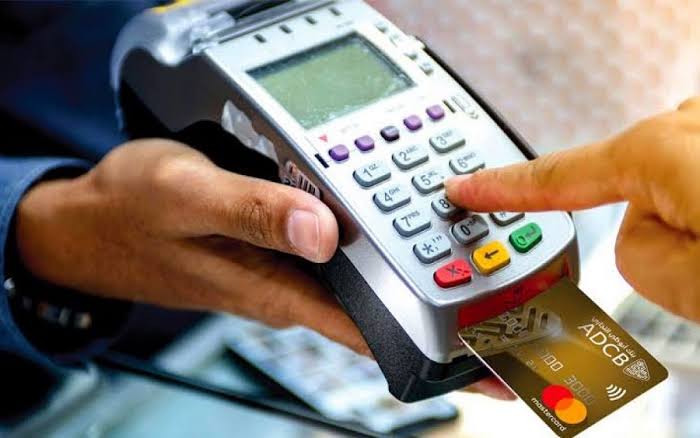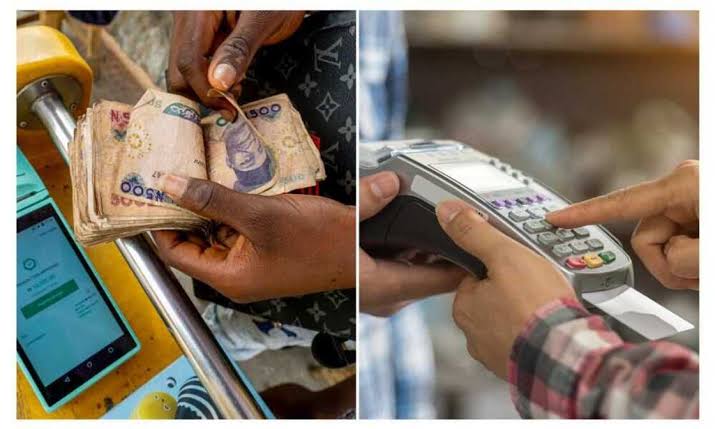Physical Address
60 Ekwema Cres, Layout 460281, Imo
Physical Address
60 Ekwema Cres, Layout 460281, Imo

In July 2024, Point of Sale (PoS) transactions in Nigeria soared to an unprecedented ₦1.01 trillion, marking a significant rise in Nigerian PoS transactions.
This surge reflects a broader shift towards cashless transactions, as the volume increased from ₦930.76 billion in June 2024 and ₦923.37 billion in July 2023.
The growing adoption of digital payment methods is reshaping the economic landscape across the country.
The remarkable growth in PoS transactions can be attributed to several key factors.
The deployment of PoS terminals has expanded significantly, with a total of 4.06 million terminals registered as of July 2024, of which 3.05 million are actively deployed.
This represents a 24% increase from the 2.30 million active terminals recorded in July 2023, underscoring Nigeria’s ongoing commitment to digital financial inclusion.
According to a report by Moniepoint, digital payments, including PoS, have doubled since the start of 2023, largely driven by the Central Bank of Nigeria’s cashless policy.
This policy aims to reduce reliance on cash and promote electronic transactions, particularly in the informal sector, which constitutes a substantial portion of Nigeria’s economy.

The rise in Nigerian PoS transactions is particularly evident in the informal economy, where more businesses are transitioning from cash-based operations to electronic payments.
This shift not only enhances transaction efficiency but also plays a crucial role in improving financial inclusion for areas previously underserved by traditional banking services.
Small businesses—from market stalls to food vendors—are increasingly adopting PoS systems.
This trend is pivotal for integrating informal businesses into the formal financial system, enabling them to access broader financial services and opportunities.
In conjunction with the rise in PoS transactions, data from the Nigeria Inter-Bank Settlement Systems (NIBSS) reveals that Nigerians spent an astounding ₦89.50 trillion in July 2024, a substantial increase from ₦79.59 trillion in June and an impressive 89% year-on-year rise from ₦47.39 trillion in July 2023.
The volume of instant payment transactions processed by NIBSS also saw a notable increase, rising to 907 million in July 2024—up 22% from 743 million transactions recorded in July 2023.
However, this surge is not without its challenges; inflationary pressures are contributing significantly to higher transaction volumes.
Kamsy Osakwe, Business Development Manager at RPG Group, highlighted that rising fuel and food costs are key drivers behind increased transaction values.
The growth of mobile money operations further complements the rise in PoS transactions in Nigeria.
In July 2024, mobile money transactions reached ₦6.23 trillion, reflecting a ₦500 billion increase from June and a remarkable 63% increase compared to ₦3.82 trillion recorded in July 2023.
This trend indicates a growing acceptance of mobile money solutions, particularly in regions where traditional banking infrastructure remains limited.
At this pace, both mobile money and PoS systems are becoming integral components of the informal economy’s gradual digitization.
Read Next: OPay NG to Visit all POS Stores across Nigeria for Security Reasons
Despite the growth of PoS and mobile money solutions, other payment methods such as QR codes have seen a decline.
QR code transactions fell to ₦51.69 billion in July 2024, down from ₦70.52 billion in July 2023—a decline of 26.7% year-on-year.
Financial Advisor Earnest Nnsi Ajadu attributes this downturn to low awareness and limited merchant acceptance compared to more established digital payment methods like PoS and USSD codes.
Nevertheless, the overall digital financial ecosystem is expanding; financial inclusion has risen from 56% in 2020 to 64% in 2023 according to EFInA.
The surge in PoS transactions to over ₦1 trillion signifies not only a shift towards cashless payments but also reflects broader economic changes within Nigeria’s informal sector.
As more businesses adopt digital payment methods, Nigeria is poised for continued growth and innovation within its financial landscape, paving the way for enhanced economic participation and financial inclusion across all demographics.
Was this information useful? Drop a nice comment below. You can also check out other useful contents by following us on X/Twitter @siliconafritech, Instagram @Siliconafricatech, or Facebook @SiliconAfrica.